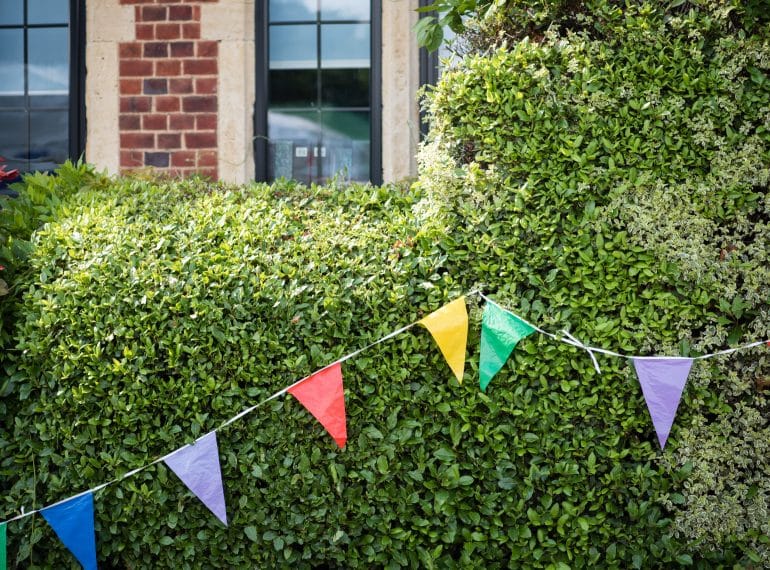
These are unprecedented times in the modern history of Queen Elizabeth’s School. Follow our Six Ss below to get the most out of this Summer Term in lockdown.
SET-UP
If you have not already done so – and hopefully many have – create an environment to support effective learning. Set aside a study space, or at least one that is dedicated for learning during study hours. This makes it easier to avoid distractions; it places pen, paper and key equipment in easy reach, and it should put you in the frame of mind for work. For some, creating the right environment might mean putting on proper clothes, too!
STRUCTURE
Much was said in the first QE Update about the importance of a routine; it certainly makes things much easier, both in terms of effective study and of your overall wellbeing. Structure is a good weapon against procrastination; it helps ensure a suitable balance between different subjects (by working on subjects Monday–Friday, as they would be on your timetable), and it gives us a sense of purpose, while helping maintain clear boundaries between work, recreation and rest. Aim to build in sufficient breaks to enhance overall productivity and wellbeing.
SOCIALISING
Maintaining social interaction is very important for wellbeing, whether that is with your family or with friends and peers. Many avenues for this have emerged, including the form forums on eQE for Years 7 and 8. Think about collaborating and communicating with others about work where relevant, as well as talking to them as friends. Try to look out for one another: with all that is going on, some may be having a harder time than others.
SWITCH OFF
Build in time for rest and relaxation, and switch off from work at the end of the day. It is all too easy to end up glued to electronic devices, so take time away from screens, too. Within the boundaries of the social distancing rules, try to get out, if only for a short while, and enjoy some sunshine and fresh air, thus benefiting from opportunities for exercise, as well as simultaneously boosting your mood and vitamin D levels. In the current crisis, many are turning to mindful activities that are good for their wellbeing, appreciating afresh life’s simpler pleasures.
STAMINA
We do not know how long this situation will all last. Whilst term will not be as high-octane as when we are at School, it is important that a good, even pace is kept up, so that you are covering the material you need to learn and feeling that you are achieving things during this period. We cannot make up all this time when we are back in School, so everyone needs to stay on track.
SCHOLARSHIP
The greater reliance on independent learning methods is actually a prime opportunity for exploring different ideas and approaches, and drawing on different sources, to aid deeper and broader thinking. There will be greater scope for you to shape the direction of some of your learning, allowing you to develop your own interests within a subject. For those in Year 11 and Year 13, the extended transition to A-level and university provides an opportunity to get ahead by engaging with material that you are drawn to.


 Sarah Westcott, Head of Science
Sarah Westcott, Head of Science Emily Parry, Head of Geography
Emily Parry, Head of Geography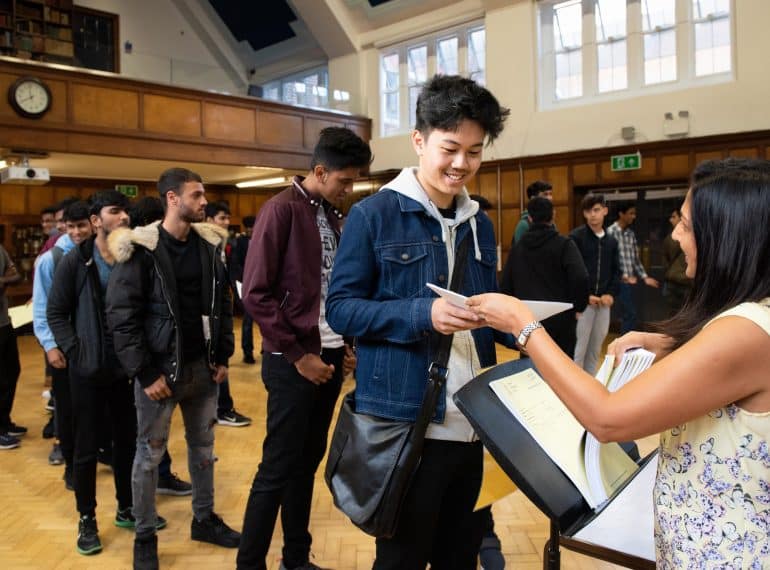
 The GCSE to A-Level Transition area of study will be a prominent focus for current Year 11 pupils in the coming weeks, together with a distance-learning course on academic research skills run by Eton College, which will be used to complement the in-school study programme.
The GCSE to A-Level Transition area of study will be a prominent focus for current Year 11 pupils in the coming weeks, together with a distance-learning course on academic research skills run by Eton College, which will be used to complement the in-school study programme.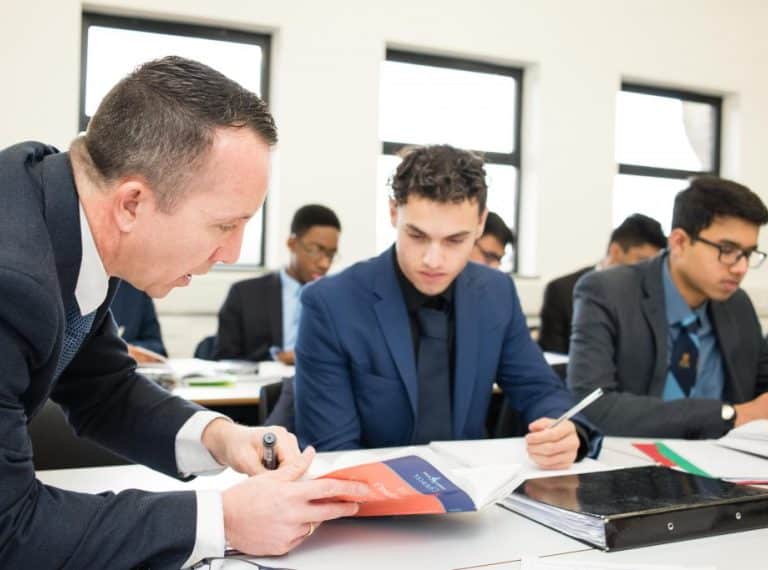
 ‘Keep in touch!’ It is a phrase we use frequently in our everyday lives, yet in the current situation when we have lost regular face-to-face contact with everyone except our immediate family, doing so is a considerable challenge. For our part, we are very keen to keep touch with all our students, firstly by using our established ways of working, and then by enhancing those with new lines of communication. This will allow us to discuss how your sons are and how their studies are progressing, to celebrate their achievements, and to consider any concerns they might have that we can help them with.
‘Keep in touch!’ It is a phrase we use frequently in our everyday lives, yet in the current situation when we have lost regular face-to-face contact with everyone except our immediate family, doing so is a considerable challenge. For our part, we are very keen to keep touch with all our students, firstly by using our established ways of working, and then by enhancing those with new lines of communication. This will allow us to discuss how your sons are and how their studies are progressing, to celebrate their achievements, and to consider any concerns they might have that we can help them with.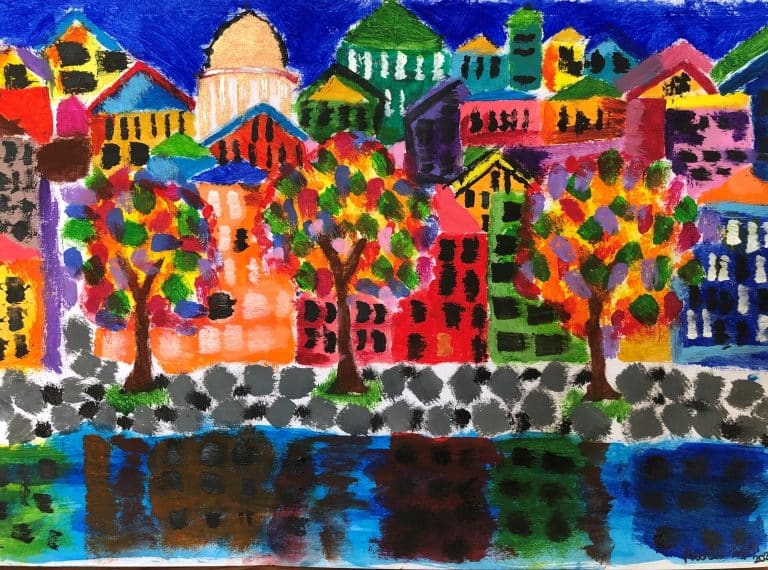
 Among the culinary creations mentioned in the illustrated Quarantine Diary Pratyush has been keeping are seafood paella, brownies, quiches, quesadillas, gnocchi and cakes.
Among the culinary creations mentioned in the illustrated Quarantine Diary Pratyush has been keeping are seafood paella, brownies, quiches, quesadillas, gnocchi and cakes.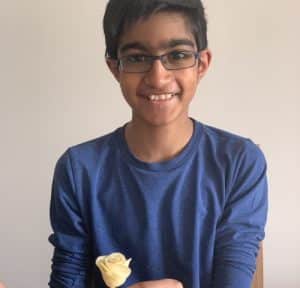 Kiaron Lad, of Year 8, was another example of a Lower School boy getting busy during the holidays. In fact, he demonstrated his creative side both in the home and in the great outdoors.
Kiaron Lad, of Year 8, was another example of a Lower School boy getting busy during the holidays. In fact, he demonstrated his creative side both in the home and in the great outdoors.
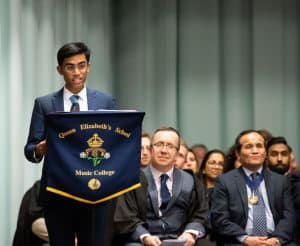 Aside from the academics, I have been trying to use this ‘stay-at-home’ period to develop my extra-curricular skills, which are sometimes pushed to the sidelines during the normal School week. Thanks to the Music department, I have been able to transfer my violin lessons (which would usually happen at School with my teacher) on to Skype. This has enabled me to continue having lessons on a weekly, scheduled basis, and keep progressing to my goal of achieving Grade 7 in violin. A similar arrangement has been achieved with my piano teacher (with whom I used to have lessons outside of school). Sticking with Music I have also recently been told by Miss Grint [Caroline Grint, Graduate Assistant] that I have passed my Grade 5 theory exam with a strong merit, having sat the exam earlier this year. Fortunately, she has also taken the initiative to continue with our usual theory lessons in the Summer Term via tasks set through eQE.
Aside from the academics, I have been trying to use this ‘stay-at-home’ period to develop my extra-curricular skills, which are sometimes pushed to the sidelines during the normal School week. Thanks to the Music department, I have been able to transfer my violin lessons (which would usually happen at School with my teacher) on to Skype. This has enabled me to continue having lessons on a weekly, scheduled basis, and keep progressing to my goal of achieving Grade 7 in violin. A similar arrangement has been achieved with my piano teacher (with whom I used to have lessons outside of school). Sticking with Music I have also recently been told by Miss Grint [Caroline Grint, Graduate Assistant] that I have passed my Grade 5 theory exam with a strong merit, having sat the exam earlier this year. Fortunately, she has also taken the initiative to continue with our usual theory lessons in the Summer Term via tasks set through eQE.